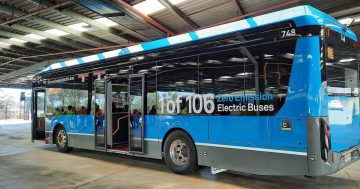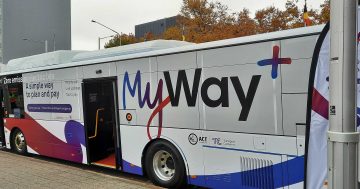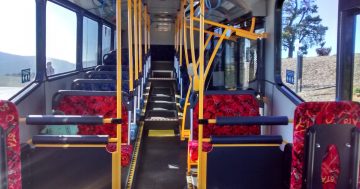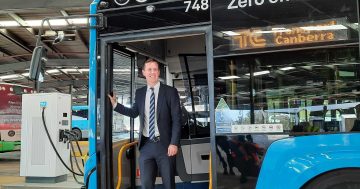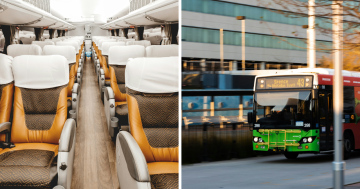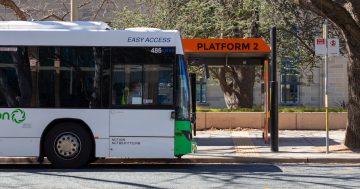That buses are much more efficient than cars is almost an article of faith. In theory it should be true, though I can’t help wonder. Canberra’s layout mitigates against public transport (unfortunately) and I’ve never heard of any actual research (though absence of evidence is not evidence of absence).
I’m not anti-public transport – far from it – but I’m sceptical about some of the claims. Scepticism is not rejection; it’s a desire for evidence. A full, or even half-full, bus is presumably dramatically more efficient than transporting the equivalent number of travellers by car. But I see so many buses with few passengers, and buses stopped at layovers with their engines running, that I have to wonder what the reality is.
One simple datum I’d like to see would be total fuel used in a year/total passenger-distance travelled. Is anyone aware of what the answer is?
Of course that’s a very simple calculation and the data should be readily available. Other factors are much more difficult to calculate.












